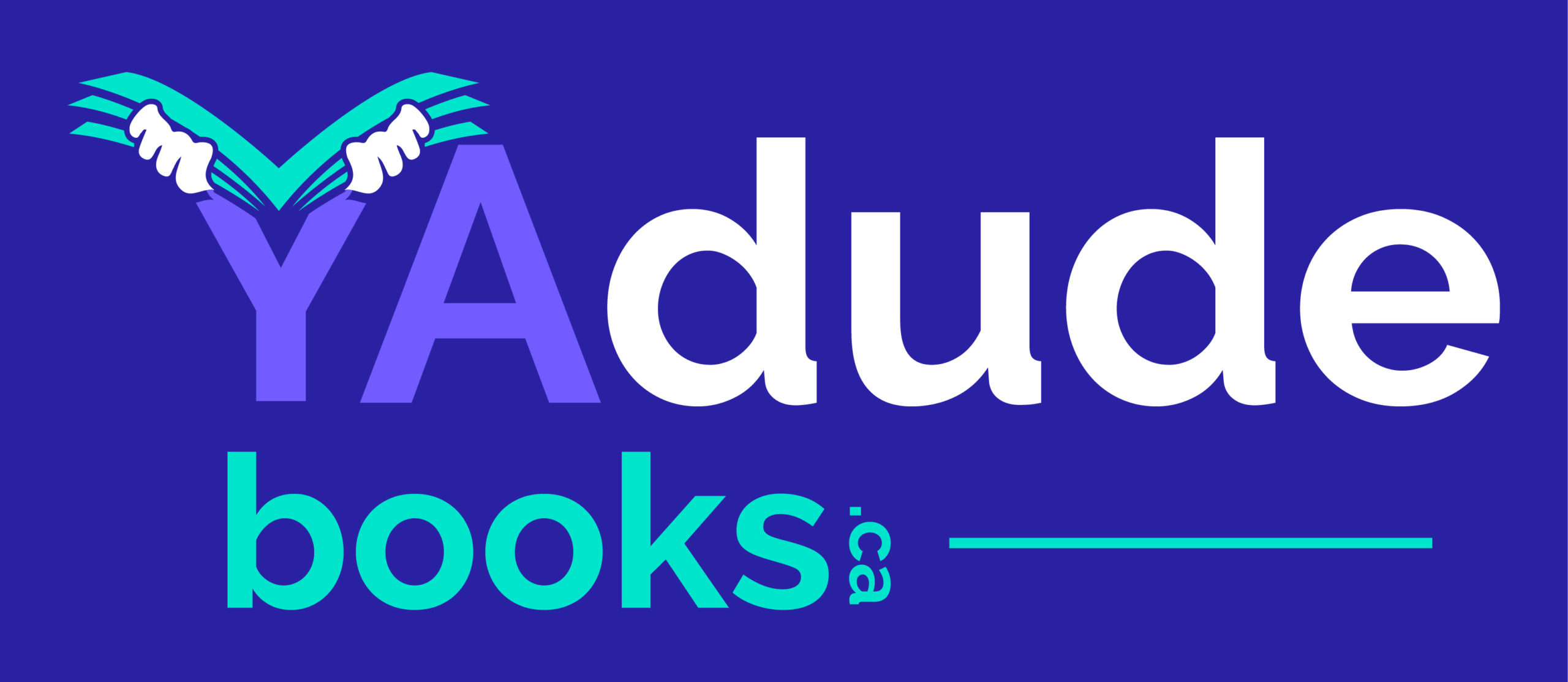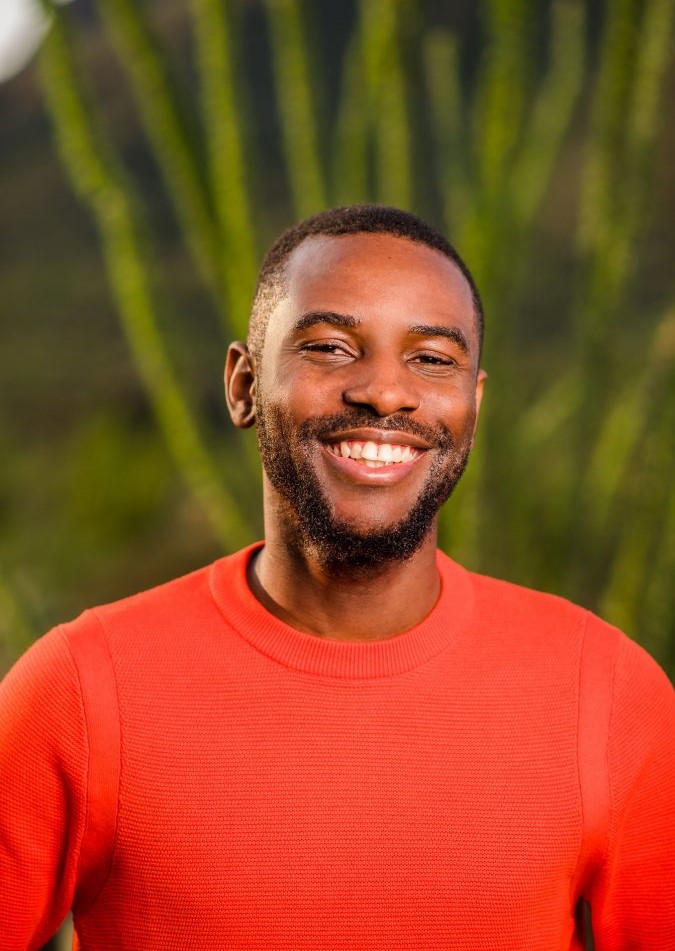“Stories offer room to engage with multiple things at once, to tell stories that center people, places and ideas that have historically been marginalized.”
Suyi Davies Okungbowa is a Nigerian fantasy, science fiction and general speculative author. Son of the Storm is his first book in The Nameless Republic, an epic fantasy trilogy. David Mogo, Godhunter, his debut godpunk fantasy novel, earned the Nommo Award for Best Novel in 2020. His shorter works have appeared in various publications and anthologies, and have been nominated for various awards. He writes for younger readers as Suyi Davies, the latest novel being Stranger Things: Lucas on the Line. He holds an MFA in creative writing from the University of Arizona and is a professor at the University of Ottawa, Canada.
You can find him at suyidavies.com, on Twitter and Instagram (@suyidavies) and at Goodreads.com.
Q: What do you love about Stranger Things and what drew you to write from Lucas’s perspective?
A: I’ve been a fan of Stranger Things from day one. Not necessarily the 80s nostalgia, but the speculative touchstones and their odes to writers like Stephen King and films like A Nightmare on Elm Street. And like most fans, I loved every character in a different way, and was always thinking about how the show could do right by them. Naturally, one of these characters is Lucas, especially being the only Black teen in this nerdy group in 80s middle America. So, when Random House and Netflix approached me and asked if I’d be interested in writing from Lucas’s perspective, I was overjoyed. Finally, I could examine this character that didn’t always get much on-screen time, and I could show sides that we’ve always known were there, have always seen glimpses of, but have never had the chance to explore.
Q: How did you balance being respectful of the West-African cultures you were drawing from, while taking the liberties required to write novels like Son of the Storm and David Mogo, Godhunter?
A: I like to think that respectfully studying how a culture operates and why, and applying similar patterns to a story world that one builds, requires a different thinking process from mining said culture for story. Just taking and slapping aspects of culture never works, even on a narrative level. Often, I tend to write stories from spaces that I myself have inhabited, but even when I haven’t, I like to think instead about patterns – why does this function this way, etc. If my story contains people who developed in a desert area, I wonder about the basis of their fashion, language, travel, etc. I may seek inspiration in already existing cultures developed in desert areas, but rather than just lifting their aesthetics and slapping them on my story, I raise questions as to why they developed that way and apply those same questions (and maybe even similar answers) within the world of my story. That’s what I think of as respectful borrowing, and it gives more room to take liberties without heedlessly appropriating existing cultures.
Q: What are your thoughts on the contemporary genres, and where do you see your work fitting in?
A: Ha, this is an interesting question. I like to think that my work is only just opening up, so I can’t say much about where it fits. I’m not a big fan of labels, so I often tell folks to describe my work however they see fit, whether that’s godpunk or epic fantasy or environmental fiction or whatever. I like to think of myself as using speculative approaches to interrogate real-world ideas, whether with a strange new world like Samuel Delaney or Octavia Butler or Ursula LeGuin or NK Jemisin or Rebecca Roanhorse would, or with slight-to-severe shifts in the known and existing, like Carmen Maria Machado or Ben Okri or P Djeli Clark or Jordan Peele, or even non-literary forms like West African epic poems or early Nigerian cinema. And though a large part of my work is Afrocentric – and will continue to be – not all of it is or will be. That’s the good thing about stories – they offer room to engage with multiple things at once, to tell stories that center people, places and ideas that have historically been marginalized.
Q: We’ve read some of your books, including Son of the Storm, David Mogo, Godhunter, The New York Times bestselling novel Black Boy, as well as your shorter works, which have appeared in worldwide publications such as Lightspeed, Strange Horizons, Tor.com, Nightmare, Fireside and anthologies such as Black Panther: Tales of Wakanda. What projects may we expect from you in the near future — any new genre twists or personal goals?
A: Genre twists – maybe, ha ha. Like I said, I don’t pigeonhole myself. At least one forthcoming short story this year has a Jordan-Peele-esque tinge to it, and I have a novella in the publication pipeline that’s more science-fantastic in the vein of Rivers Solomon-meets-Snowpiercer. But you can still expect more of the same: Warrior of the Wind (book #2 of The Nameless Republic) is out in 2023, and book #3 will follow after. I will likely do more tie-in work because I love that it scratches a different creative itch. Then there’s young adult and middle-grade work – definitely a novel or two in the pipeline there. So, yeah, if you’re asking about personal goals, my endgame is to keep telling stories in whatever form, format, medium or approach that best serves them, and to whatever audience is willing to receive them.
Q: Congratulations on your novel, Stranger Things: Lucas on the Line! Please talk about the premise of this book. Personally, I am a big fan of Stranger Things and while Lucas is one of the main protagonists who is highly intelligent and skilled in combat, I have always thought of him as the one most grounded in reality in the group. Do you think readers will see a different Lucas here?
A: Absolutely! I wouldn’t say a different Lucas – more like a different side of Lucas, because he’s always been the same. We all know Lucas doesn’t get much screen time compared to others, but we’ve always seen flashes of a careful, thoughtful, sensitive young man in there. When asked to write, this is the part I wanted to bring to the fore. On screen, Lucas is always this badass nerd who knows how to get stuff done and has big Commando moments, but I wanted to highlight the quieter ruminations, the identity crises, the struggles and challenges of being a young Black teen coming of age in a not-very-friendly-to-Black-folks time and place in American history. There’s also his relationship with Max, of which we only see snippets on screen, as well as other interactions we never see. Like: What are his parents and family life like? How do he and Erica get along when they’re not arguing or fighting monsters? What would he and Robin talk about if they hung out? I wanted to create a wholesome, full and complete picture of who Lucas was following the events of Season 3, and show why it made sense that he made the decisions he did in Season 4.
Q: What books and short stories are you currently reading, or have read recently and enjoyed? Do you have any suggestions for our young adult readers at YAdudebooks?
A: Yes! The most recent YA novel I read was A Snake Falls to Earth by Darcie Little Badger – I think it just scooped up a bunch of awards too. It’s a story about a young girl from our world and a young cottonmouth snake from a sort of parallel animal people world, and how their coming-of-age collides in a way that brings them together to try to stop a threat to both their worlds. It employs storytelling in a manner that’s different from many YA books out there, and I feel like any reader, younger or older, will benefit greatly from taking a chance on it.
Interviewed by Weldon Ngetich

